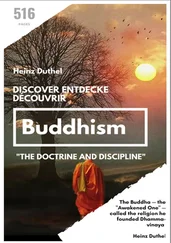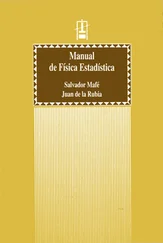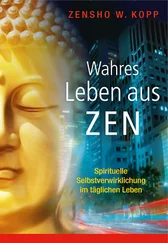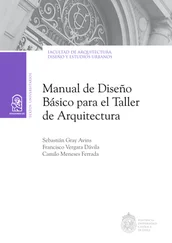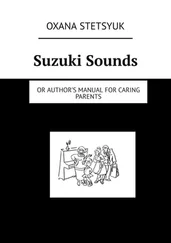Teitaro Suzuki - Manual of Zen Buddhism
Здесь есть возможность читать онлайн «Teitaro Suzuki - Manual of Zen Buddhism» весь текст электронной книги совершенно бесплатно (целиком полную версию без сокращений). В некоторых случаях можно слушать аудио, скачать через торрент в формате fb2 и присутствует краткое содержание. Жанр: Религиоведение, Религия, Руководства, на английском языке. Описание произведения, (предисловие) а так же отзывы посетителей доступны на портале библиотеки ЛибКат.
- Название:Manual of Zen Buddhism
- Автор:
- Жанр:
- Год:неизвестен
- ISBN:нет данных
- Рейтинг книги:3 / 5. Голосов: 1
-
Избранное:Добавить в избранное
- Отзывы:
-
Ваша оценка:
- 60
- 1
- 2
- 3
- 4
- 5
Manual of Zen Buddhism: краткое содержание, описание и аннотация
Предлагаем к чтению аннотацию, описание, краткое содержание или предисловие (зависит от того, что написал сам автор книги «Manual of Zen Buddhism»). Если вы не нашли необходимую информацию о книге — напишите в комментариях, мы постараемся отыскать её.
Manual of Zen Buddhism — читать онлайн бесплатно полную книгу (весь текст) целиком
Ниже представлен текст книги, разбитый по страницам. Система сохранения места последней прочитанной страницы, позволяет с удобством читать онлайн бесплатно книгу «Manual of Zen Buddhism», без необходимости каждый раз заново искать на чём Вы остановились. Поставьте закладку, и сможете в любой момент перейти на страницу, на которой закончили чтение.
Интервал:
Закладка:
39. The mind functions through the sense-organs, and thereby an objective world is comprehended—
This dualism marks darkly on the mirror;
When the dirt is wiped off, the light shines out;
So when both the mind and the objective world are forgotten, the Essence asserts its truth.
40. Alas! this age of degeneration is full of evils;
Beings are most poorly endowed and difficult to control;
Being further removed from the ancient Sage, they deeply cherish false views;
The Evil One is gathering up his forces while the Dharma is weakened, and hatred is growing rampant;
Even when they learn of the “abrupt” school of the Buddhist teaching,
What a pity that they fail to embrace it and thereby to crush evils like a piece of brick!
41. The mind is the author of all works and the body the sufferer of all ills;
Do not blame others plaintively for what properly belongs to you;
If you desire not to incur upon yourself the karma for a hell,
Cease from blaspheming the Tathagata-wheel of the good Dharma.
42. There are no inferior trees in the grove of sandalwoods,
Among its thickly-growing primeval forest lions alone find their abode;
Where no disturbances reach, where peace only reigns, there is the place for lions to roam;
All the other beasts are kept away, and birds do not fly in the vicinity.
43. It is only their own cubs that follow their steps in the woods,
When the young ones are only three years old, they roar.
How can jackals pursue the king of the Dharma?
With all their magical arts the elves gape to no purpose.
44. The perfect “abrupt” teaching has nothing to do with human imagination;
Where a shadow of doubt is still left, there lies the cause for argumentation;
My saying this is not the outcome of my egotism,
My only fear is lest your discipline lead you astray either to nihilism or positivism.
45. “No” is not necessarily “No”, nor is “Yes” “Yes”;
But when you miss even a tenth of an inch, the difference widens up to one thousand miles;
When it is “Yes”, a young Naga girl in an instant attains Buddhahood,
When it is “No”, the most learned Zensho [10]while alive falls into hell.
46. Since early years I have been eagerly after scholarly attainment,
I have studied the sutras and sastras and commentaries,
I have been given up to the analysis of names and forms, and never known what fatigue meant;
But diving into the ocean to count up its sands is surely an exhausting task and a vain one;
The Buddha has never spared such, his scoldings are just to the point,
For what is the use of reckoning the treasures that are not mine?
All my past achievements have been efforts vainly and wrongly applied-I realize it fully now,
I have been a vagrant monk for many years to no end whatever.
47. When the notion of the original family is not properly understood,
You never attain to the understanding of the Buddha's perfect “abrupt” system;
The two Vehicles exert themselves enough, but lack the aspirations [of the Bodhisattva];
The philosophers are intelligent enough but wanting in Prajna;
[As to the rest of us] they are either ignorant or puerile;
They take an empty fist as containing something real, and the pointing finger for the object pointed;
When the finger is adhered to as the moon itself, all their efforts are lost;
They are indeed idle dreamers lost in a world of senses and objects.
48. The Tathagata is interviewed when one enters upon a realm of no-forms,
Such is to be really called a Kwanjizai (Avalokitesvara)
When this is understood, the karma-hindrances are by nature empty;
When not understood, we all pay for the past debts contracted.
49. A royal table is set before the hungry, but they refuse to eat;
If the sick turn away from a good physician, how are they cured?
Practise Zen while in a world of desires, and the genuine power of intuition is manifested;
When the lotus blooms in the midst of a fire, it is never destroyed.
Yuse (Yung-shih) the Bhikshu [11]was an offender in one of the gravest crimes, but when he had an enlightened insight into No-birth
He instantly attained to Buddhahood and is still living in another world.
50. The doctrine of fearlessness is taught as loudly as a lion roars:
What a pity that confused minds inflexibly hardened like leather
Understand only that grave offences are obstructions to Enlightenment,
And are unable to see into the secrets of the Tathagata's teaching.
51. Anciently, there were two Bhikshus, the one committing murder and the other a carnal offence:
Upali's insight was like that of the glowworm, and ended only in tightening the knots of offence;
But when they were instantly enlightened by the wisdom of Vimalakirti,
Their griefs and doubts melted away like the frost and snow before the blazing sun.
52. The power of incomprehensible emancipation
Works wonders as innumerable as the sands of the Ganga and knows no limits;
[To him] the four kinds of offerings are most willingly made,
By him thousands of pieces of gold are disbursed without involving anybody in debts;
The bones may be crushed to powders, the body cut
up to pieces, and yet we cannot repay him enough for what he does for us;
Even a phrase [issuing from him] holds true for hundreds of thousands of kotis of kalpas.
53. He is the Dharma-king deserving the highest respect;
The Tathagatas, as many in number as the Ganga-sands, all testify to the truth of his attainment;
I now understand what this mani jewel is,
And know that all those who accept it in faith are in correspondence [with it].
54. As to seeing it, the seeing is clear enough, but no objects are here to be seen,
Not a person here, nor the Buddha;
Chiliocosms numberless are mere bubbles in the ocean,
All the sages and worthies are flashes of lightning.
55. However rapidly revolves the iron-wheel over my head,
The perfect brightness of Dhyana and Prajna in me is never effaced;
The sun may turn cold. and the moon hot;
With all the power of the evil ones the true doctrine remains forever indestructible.
The elephant-carriage steadily climbs up the steepest hill,
Before whose wheels how can the beetle stand?
56. The great elephant does not walk on the hare's lane,
Supreme Enlightenment goes beyond the narrow range of intellection;
Cease from measuring heaven with a tiny piece of reed;
If you have no insight yet, I will have the matter settled for you.
V. BASO (MA-TSU) AND SEKITO (SHIH-T'OU), TWO GREAT MASTERS OF THE T'ANG DYNASTY
Ma-tsu (Baso) whose posthumous title was the Zen Master of Great Quietude ( ta-chi ) was to be properly called Tao-i (Doichi). His family name was Ma, from the district of Han-chou. His teaching which was originally propagated in the province of Chiang-hsi proved of great influence in the Buddhist world of the time, and he came to be generally known as Ma the Father, that, Ma-tsu.
Historically, Zen Buddhism was introduced to China by an Indian monk called Bodhidharma during the South and North Dynasties, probably late in the fifth century. But it was not until the time of Hui-neng and Shen-hsiu that Bodhidharma was recognized as the first patriarch of Zen Buddhism in China; for this was the time when Zen to be properly so called came to establish itself as one of the strong Buddhist movements created by Chinese religious genius. The movement firmly took root with Ma-tsu (-788) and Shih-t'ou (700–790). The latter had his monastery in the province of Hu-nan, and thus Hu-nan and Chiang-hsi became the hot-bed of the Zen movement. All the followers of Zen in China as well as in Japan at present trace back their lineage to these two masters of the T'ang.
Читать дальшеИнтервал:
Закладка:
Похожие книги на «Manual of Zen Buddhism»
Представляем Вашему вниманию похожие книги на «Manual of Zen Buddhism» списком для выбора. Мы отобрали схожую по названию и смыслу литературу в надежде предоставить читателям больше вариантов отыскать новые, интересные, ещё непрочитанные произведения.
Обсуждение, отзывы о книге «Manual of Zen Buddhism» и просто собственные мнения читателей. Оставьте ваши комментарии, напишите, что Вы думаете о произведении, его смысле или главных героях. Укажите что конкретно понравилось, а что нет, и почему Вы так считаете.



